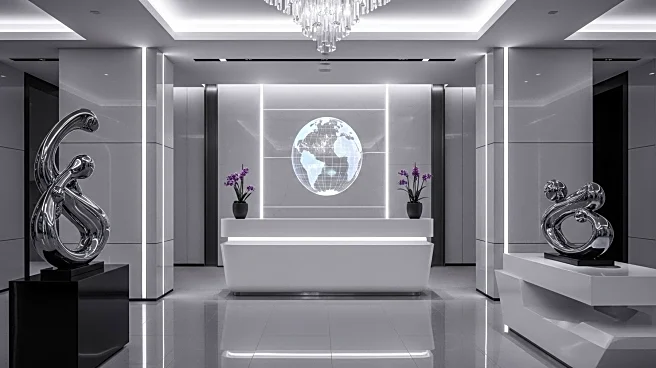What's Happening?
The Building Design+Construction's 2025 Giants 400 Report has ranked the largest engineering and engineering/architecture firms in the U.S. hospitality sector. Jacobs, EXP, AECOM, IMEG, LANGAN, NV5 Global, Kimley-Horn, Jensen Hughes, and FEA Engineering Services have been identified as the top firms. This ranking considers revenue from various hospitality facilities, including casinos, hotels, and resorts. The report highlights the significant role these firms play in shaping the hospitality landscape through their engineering expertise.
Why It's Important?
The ranking of these firms underscores the critical role of engineering and architecture in the hospitality industry, which is a significant contributor to the U.S. economy. As the hospitality sector continues to grow, the demand for innovative and sustainable design solutions becomes more pressing. These firms are at the forefront of delivering such solutions, which can lead to enhanced guest experiences and operational efficiencies. The recognition also reflects the competitive nature of the industry, where firms strive to differentiate themselves through excellence in design and engineering.
What's Next?
As the hospitality industry evolves, these leading firms are likely to continue innovating to meet new challenges and opportunities. This may include integrating more sustainable practices and advanced technologies into their projects. Stakeholders in the hospitality sector, including hotel operators and developers, will be closely watching these firms for new trends and solutions that can be applied to future projects. The ongoing focus on wellness architecture and sustainable design is expected to influence the direction of future developments.
Beyond the Headlines
The emphasis on wellness architecture within the hospitality sector highlights a broader cultural shift towards health and well-being. This trend is not only shaping the design of hospitality spaces but also influencing consumer expectations and industry standards. As wellness becomes a key differentiator, firms that can effectively integrate these elements into their designs may gain a competitive edge. This shift also raises questions about the long-term impact on traditional hospitality models and how they will adapt to these changing demands.










